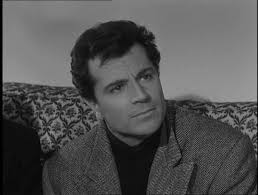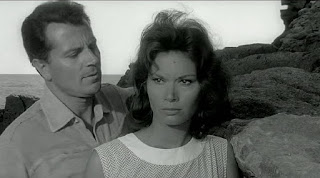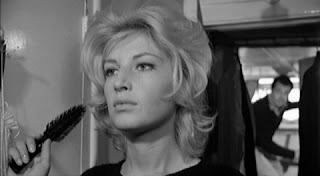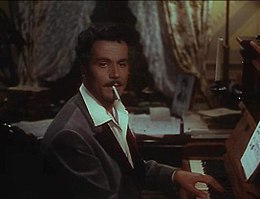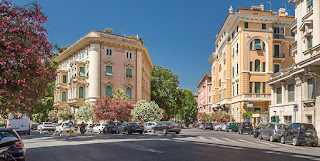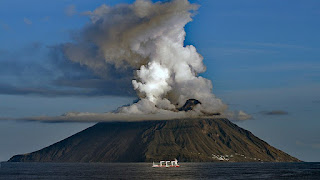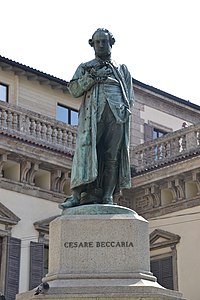Mount Vesuvius – the 1944 eruption
The last time the volcano was seen to blow its top
Mount Vesuvius, the huge volcano looming over the bay of Naples, erupted on this day in 1944. Vesuvius is the only volcano on mainland Europe to have erupted during the last 100 years and is a constant worry because of its history of explosive eruptions and the large number of people living close by. It is most famous for its eruption in AD 79, which buried the Roman cities of Pompeii and Herculaneum and is believed to have killed thousands of people. There were at least three larger eruptions of Vesuvius before AD 79 and there have been many since, including one in 1631 that buried villages under lava flows and killed about 300 people. The 1944 went on for several days, destroying three villages nearby and about 80 planes belonging to the US Army Air Forces, which were based at an airfield close to Pompeii. Read more...
_________________________________________________________________
The Five Days of Milan
Citizens rebel to drive out ruling Austrians
The Five Days of Milan, one of the most significant episodes of the Risorgimento, began on this day in 1848 as the citizens of Milan rebelled against Austrian rule. More than 400 Milanese citizens were killed and a further 600 wounded but after five days of street battles the Austrian commander, Marshal Josef Radetzky, withdrew his 13,000 troops from the city. The 'Cinque Giornate' uprising sparked the First Italian War of Independence between the Kingdom of Sardinia and the Austrian Empire, which ruled much of northern Italy in the early part of the 19th century and they maintained a harsh regime. The Milan riots followed the imposition of tax increases and the use of soldiers to ensure that everybody paid. Soon after the Milan riots, an insurrection in Venice also succeeded in ejecting Austrian forces. By March 23, Charles Albert of Savoy had declared war on Austria. Read more...
__________________________________________________________________
Bobby Solo - pop singer
Sixties star found fame after Sanremo disqualification
Bobby Solo, who was twice winner of Italy's prestigious Sanremo Festival yet had his biggest hit with a song that was disqualified, was born Roberto Satti on this day in 1945 in Rome. Solo won the contest in 1965 and 1969 but it was the controversy over his 1964 entry that thrust him into the spotlight. The format for the competition, which aims to select the best song rather than the best artist, requires each entry to be sung by two artists, one a native Italian, the other an international guest star. In 1964, Solo was paired with the American singer Frankie Laine but was stricken with a throat problem. Rather than withdraw, he sang the song with the help of a backing track, only to be told afterwards that this was against the rules. The song - Una lacrima sul viso (A Tear on Your Face) - was disqualified but attracted such attention that it became the first record in Italy to sell more than a million copies, setting Solo on the way to a highly successful career. Read more...
Home







